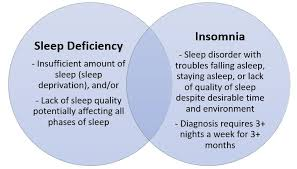This week I thought we would take a look at something I am
thankfully I don’t suffer from, although there have been times when I felt like
I do suffer from it. The condition is insomnia.
Insomnia is a sleep disorder that makes it hard to fall
asleep or stay asleep, even when you have the time and environment to sleep
well. It can cause you to wake up too early or not feel refreshed when you
wake up. Insomnia can affect your mood, energy levels, and daily
activities.
Insomnia can be caused by stress, physical ailments, mental
health problems, or poor sleep habits.
It can affect people of all ages, but teens may be especially
susceptible.
In most cases it is related to poor sleeping habits, depression,
anxiety, lack of exercise, chronic illness or certain medication.
Symptoms may include difficulty falling or staying asleep and
not feeling well-rested.
Treatment for insomnia consists of improving sleep habits,
behaviour therapy and identifying and treating underlying causes. Sleeping
pills may also be used but should be monitored for side effects.
It seems that more women than
men have insomnia in the United States, more than one in four women experience
insomnia, compared with fewer than one in five men.
Also, a study found that women of all ages reported worse sleep
quality than men.
Women are twice as likely to have insomnia than men.
This may be due to hormonal changes
that women have during menstruation, pregnancy, breastfeeding, and menopause
can cause or contribute to sleep difficulties. There are also physical symptoms
that many women deal with during these times such as cramps or night sweats,
that disrupt sleep.
Caffeine can cause insomnia,
especially if consumed in large amounts or close to bedtime, a study found that
400 mg of caffeine taken up to 6 hours before bed can significantly disrupt
sleep, reducing it by more than an hour.
Caffeine can disrupt your natural
sleep-wake cycle, making it harder to get quality sleep.
People with chronic insomnia may
use caffeine to cope with daytime sleep deprivation, which can worsen insomnia
at night.
The exact effects of caffeine
depend on the dose and an individual's sensitivity.
To minimize the risk of insomnia,
it's generally recommended to avoid caffeine in the hours before
bed. People who regularly drink caffeine may be able to tolerate it better
than those who don't.
Next week I will post the list of
things that so called experts suggest to help with insomnia.






Fibromyalgia commonly has sleep issues. Haven't slept well since I got it. Menopause and insomnia go hand in hand in my family line. I am long past that, though--lol! It was really crazy when I was going through it , though.
ReplyDeleteThis post jinxed me last night, I got very little sleep and I have not been with it all day
DeleteI am very sensitive to the effects of caffeine, so it's crucial in the morning, but I never drink coffee after 2:30 in the afternoon. If I need it, I will sometimes take a 5mg dose of melatonin before bed, but don't take it every night. Great information, Jo-Anne. Blessings!
ReplyDeleteNot being able to sleep is terrible and so frustrating I also take melatonin
Deleteggrrr The beloved can sleep sitting up in a chair watching TV or travelling in a crowded train. But I haven't been able to sleep properly since the children's night feeds 50+ years ago. Who knew being a male had advantages :(
ReplyDeleteSo can Tim but not me I have never been comfortable sleeping in an armchair watching TV
DeleteHad it since I was a kid. It's always takes a couple hours to fall asleep, then I wake up every hour. Not fun, but naps help.
ReplyDeleteNaps are awesome
DeleteI believe I definitely suffer from this. I only have one cup of coffee early in the morning. I do have anxiety and depression.
ReplyDeleteI can have a string of good nights then I can have a night like last night when I got maybe 1.5hrs of sleep
DeleteThis is such an insightful post on insomnia! I appreciate how you’ve highlighted the impact of lifestyle factors, especially caffeine, and the challenges women face with sleep. It’s eye-opening to see the gender differences in sleep quality and the role of hormones. Looking forward to your follow-up post on expert tips for better sleep!
ReplyDeleteI just shared a blog, please let me know what you think: https://www.melodyjacob.com/2024/11/why-duex-float-portable-monitor-is-game-changer.html
I am pleased you liked the post
ReplyDelete